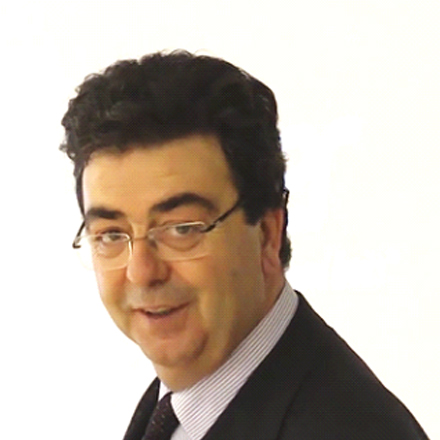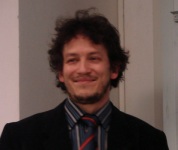Keynotes
Microservices everywhere?
Prof. Antonio Brogi, University of Pisa
In this talk we will critically discuss the main characteristics of microservices and the potentially huge advantages offered by their adoption for managing enterprise applications. We will also show how a simple formalization of the main properties of microservices can be exploited to drive the refactoring of existing applications.
 |
Short Bio: Antonio Brogi is full professor at the Department of Computer Science, University of Pisa (Italy) since 2004. Previously, he was associate professor (1998-2004) and assistant professor (1993-1998) at the same Department. From august 1994 to august 1995 he was visiting professor at the Department of Computer Science of UCLA (USA). He holds a Ph.D. in Computer Science (1993, University of Pisa). From November 2012 to November 2015 he has servced as Dean of the Bachelor's and Master's Degree Programs in Computer Science at the University of Pisa. His research interests include service-oriented and cloud-based computing, coordination and adaptation of software elements, formal methods, and design of programming languages. He has published the results of his research in over 150 papers in international journals and conferences. He is member of the editorial board of the journals "Advances in Computer Science and Engineering", "Computer Languages, Systems and Structures", and "International Journal of Web Science". He has co-edited several special issues of international journals and has participated in the program committee of a number of international conferences and workshops in his areas of research. (A list of the program committees in which he has participated during the last years is available at http://www.di.unipi.it/~brogi/.) He is member of the steering committee of the CIbSE, ESOCC and FOCLASA conference series. |
How does the new memory hierarchy affect the Cloud model?
Prof Antonio Cisternino, University of Pisa
Cloud, started as a business model, has become a reference model to organize and use IT resources so that users are shielded by the ever growing complexity of the ICT infrastructures. As in any other model, also cloud is based on implicit and explicit assumptions about the technology that made it possible. In this talk I will present recent technology changes that are affecting the very underlying assumptions that have contributed to define the cloud reference architecture and the way cloud is used. In particular I will focus on the revolution of storage media and the impact on the whole communication infrastructure.
 |
Short Bio: Antonio Cisternino's Homepage |
Invited Talk
Open Science as-a-Service for research communities and content providers
Dr. Alessia Bardi, National Research Council, Italy
Open Science is a set of practices of science according to which research activities and the research products they generate should be openly available, under terms that enable their findability, accessibility, re-use and re-distribution. The main effects of the implementation of Open Science principles is to enable responsible, reproducible and transparently assessable research. For an effective implementation of Open Science principles, a behavioral change in interested stakeholders and new tools for publishing in the scholarly communication ecosystem are required. Open Science publishing calls for the publishing of all types of research artefacts, beyond scientific literature. Today, the scholarly communication ecosystem lacks of tools and research community practices on Open Science publishing. To fill this gap and support a smooth transition towards Open Science, the OpenAIRE initiative is offering two novel services for research communities and content providers (e.g., institutional repositories, data repositories). The final goal is to support the cultural and technological shift towards the Open Science paradigm, from which all the different stakeholders in the research domain and of the society at large can benefit.
| Short Bio: Alessia Bardi is a researcher at Networked Multimedia Information Systems (NeMIS) Laboratory of the Italian National Research Council - Institute of Information Science and Technologies (CNR-ISTI). She completed her PhD in Information Engineering at the Engineering Ph.D. School "Leonardo da Vinci" of the University of Pisa in 2016. She has been involved in several EC funded projects for the realisation and operation of aggregative data infrastructures for research communities in the Humanities and Studies of the past (e.g. HOPE - Heritage of the People's Europe, EFG - European Film Gateway). She is currently participating to projects in support of Open Access and Open Science, in particular OpenAIRE and OpenUP. Her research interests include service-oriented architectures, data and metadata interoperability and data infrastructures for e-science and scholarly communication. |
